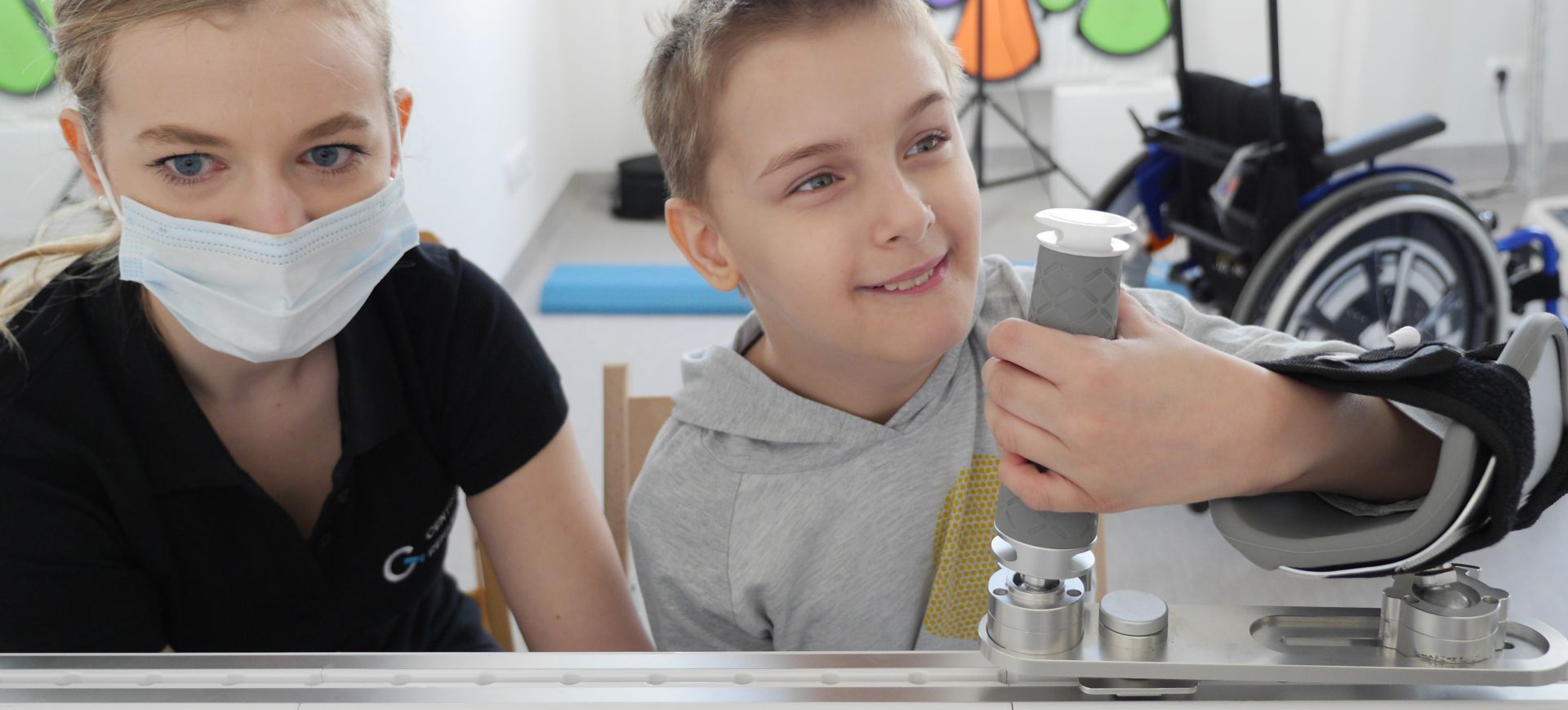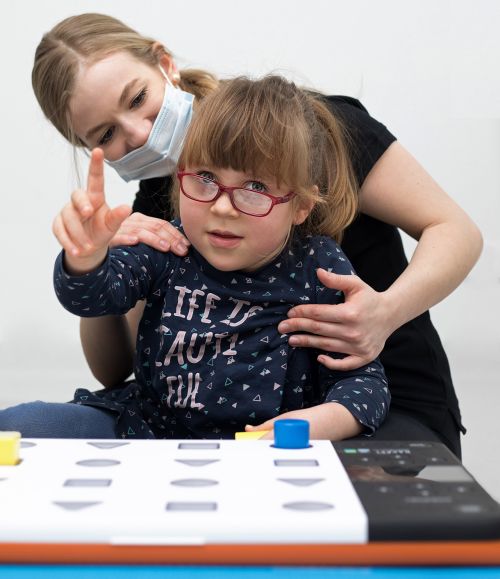Child therapy
Hand therapy
these are activities where we focus on the proper function of the entire upper limb, but not only. Knowing how important the hand is in the brain and how it is reflected in other parts of the body (vision, speech, central stabilization), we will always emphasize the importance of this therapy in the context of the child's functioning. The hand is a motor organ responsible for many functions. Thanks to it, we are able to grab, lift, lower and carry objects, as well as perform precise activities such as fastening buttons, cutting vegetables or drawing. The exercises and methods selected by us take into account the individual needs and capabilities of each child.
During the classes, our goal is also to maintain / increase the range of mobility of the shoulder girdle and improve the so-called fine motor skills, i.e. precise movements of the hands and fingers. We check the graphomotor skills of our patients, very often many of them have problems with the proper maintenance of crayons, pens, scissors, so we try to support them as best as possible by choosing the right aids that adapt the grip and equipment supporting rehabilitation. In Therapy, we will focus on improving eye-hand coordination so that the child can participate as much as possible in social life: kindergarten, school, and family.

At the Grawitacja Center, we also provide Hand Therapy in the form of a stay, as the Forced Necessity Therapy (CIMT), with which we will be assisted by the most modern devices, including: Galileo Mano, Raphael, Functional Electrostimulation.
HAND THERAPY IS FOR:
- children with cerebral palsy,
- children with significantly decreased or increased muscle tension in the upper limb and shoulder girdle,
- children reluctant to undertake manual activities (painting, molding from plasticine, arranging small objects),
- children who have problems learning everyday self-service activities (dressing, tying shoelaces, fastening buttons, etc.),
- children who have problems with coordinating both hands during manipulation activities,
- children who perform tasks that require high precision too slowly or too quickly and carelessly,
- children who do not like to touch new and diverse textures.

Make an appointment or find out more - Call us!
